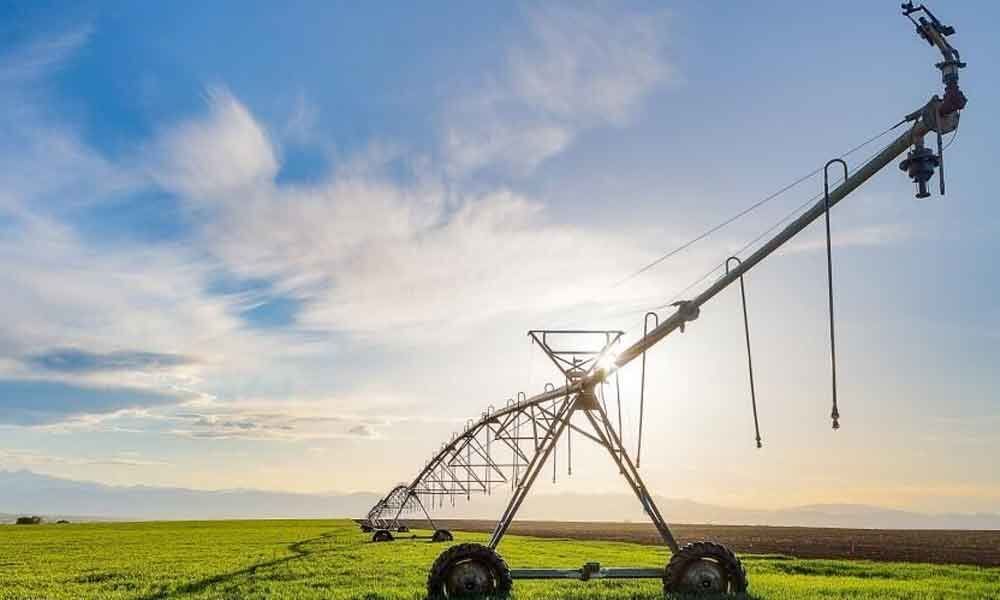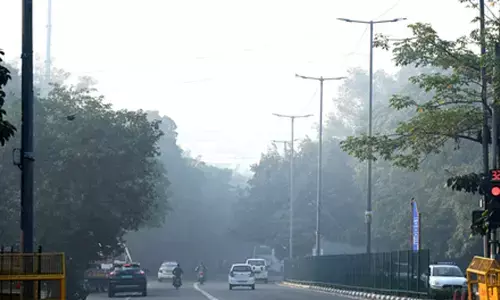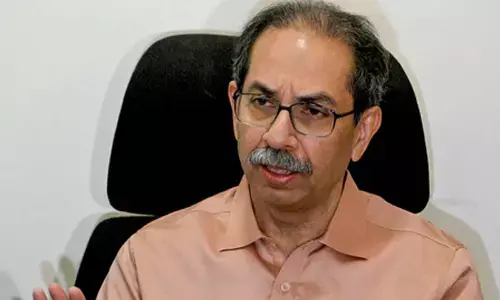Why farmers today need to take up precision farming

The century’s most valuable innovation in farm management is based on using Information and Communications Technologies
An information and technology-based farm management system identifies, analyses and manages variability in fields by conducting crop production practices at the right place and time and in the right way, for optimum profitability, sustainability and protection of the land resource.
Although a considerable research effort has been expended, it is still only a portion of farmers who have practiced any type of precision agriculture (PA) technologies system approach to re-organise the total system of agriculture towards low-input, high-efficiency and sustainable agriculture.
Precision farming is an approach where inputs are utilised in precise amounts to get increased average yields, compared to traditional cultivation techniques.
In India, one major problem is the small field size. More than 58 per cent of operational holdings in the country have size less than one hectare (ha).
Only in the states of Punjab, Rajasthan, Haryana and Gujarat do more than 20 per cent of agricultural lands have an operational holding size of more than four ha.
Commercial as well as horticultural crops also show a wider scope for PA in the cooperative farms.
Sustainable PA is this century's most valuable innovation in farm management that is based on using Information and Communication Technologies (ICTs).
This is the most recent innovation technology based on sustainable agriculture and healthy food production and it consists of profitability and increasing production, economic efficiency and the reduction of side effects on the environment.
Challenges
Research suggest educational and economic challenges as the two most important in the application of precision agriculture.
Among the variables that contribute to educational challenges, lack of local experts, funds, knowledgeable research and extension personnel have more of an impact compared to others.
PA and initial costs have more of an impact among the economic challenges compared to the other issues.
Why precision farming
• To increase agriculture productivity
• Prevents soil degradation
• Reduction of chemical application in crop production
• Efficient use of water resources
• Dissemination of modern farm practices to improve quality, quantity and reduced cost of production
• Developing favourable attitudes
• Precision farming changing the socio-economic status of farmers
Advantages
• Agronomical perspective
• Technical perspective
• Environmental perspective
• Economic perspective
Precision farming enables climate-smart agri-business
Climate-smart agriculture is necessary for achieving the goal. PA at the appropriate level in food insecure countries is also a powerful tool once it is applied appropriately, based on local crop and site-specific conditions.
Consequently, the adoption of new techniques in less-developed areas should start with a basic, affordable, and effective mix of technologies and practices.
Agricultural extension via digital advisory services
Adoption of best practices is critical and digital communication is necessary to bridge the technology gap. Agricultural extension plays a key role in technology dissemination and the private sector is increasingly active in this domain.
Today, Digital Advisory Services (DAS) are either part of the offering of input providers or stand-alone for profit, typically start-up platforms.
In the first case and with few exceptions, existing free DAS is a differentiation tool to promote the use of the manufacturers' core products.
The main barriers to DAS adoption are limited digital infrastructure and illiteracy, areas where India has significant advantages over most of Sub-Saharan Africa.
Drip irrigation
In addition to its advantages over other types of irrigation for improving yields, drip irrigation is the best delivery system for soluble fertilisers.
It also drastically reduces the propagation of weeds and the need for herbicides. Foreign — principally Israeli — and local leading brands dominate the established micro irrigation market in India.
Solar pumps
Solar pumps that lift well water to feed drip systems are a benefit multiplier. Yet the introduction of solar pumps is slow despite their zero carbon footprint and low-maintenance photovoltaic technology.
According to official estimates, over twenty million well pumps operate today in India, roughly split between electric and diesel at a solar unit cost ranging from $1,500 to $10,000 for multiple farmers.
Changes to subsidy policies now underway may help pave the way for mass adoption and hence further increase the role of private firms contributing to the proliferation of solar pumps.
Soil and crop monitoring
Imagery-equipped drones are often technically and financially affordable for small farmer communities, also particularly suited for small plots and contract farming.
Early detection and correction of soil and crop deficiencies is a win-win proposition for both farmers and off-takers.
If purchased and operated by large agri-businesses, the investment in drones and imagery analysis can be factored into the produce price paid to farmers.
Extending the usage of equipment for soil and crop monitoring to farming cooperatives and contract farms also benefits from new forms of capex utilisation led by the private sector, now spreading from developed countries into emerging markets.
Technology
Technologies include a vast array of tools of hardware, software and equipment
• Global Positioning System (GPS) receivers
• Differential Global Positioning System (DGPS)
• Geographic information systems (GIS)
• Remote sensing
• Variable Rate Applicator
• Combine harvesters with yield monitors
Drawbacks of precision farming
• High cost
• Lack of technical expertise knowledge and technology
• Not applicable or difficult/costly for small land holdings
• Heterogeneity of cropping systems and market imperfections
The policy approach to promote precision farming at farm level
• Identify the niche areas for the promotion of crop specific precision farming
• Creation of multidisciplinary teams involving agricultural scientists in various fields, engineers, manufacturers and economists to study the overall scope of precision agriculture
• Provide complete technical backup support to the farmers to develop pilots or models, which can be replicated on a large scale
• Pilot study should be conducted on farmers' fields to show the results of precision agriculture implementation
• Creating awareness among farmers about consequences of applying imbalanced doses of farm inputs like irrigation, fertilisers, insecticides and pesticides
(Courtesy: Down To Earth)














